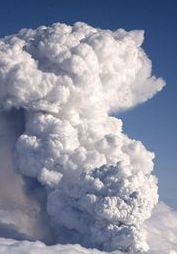So, what does the Eyjafjallajoekull volcano eruption in Iceland have to do with your exams?

This is our 100th blog posting and a big thank you to all of you for following this blog and for all your kind comments. They’re much appreciated!
Please do contact us with any thoughts or suggestions on what you’d like to see on this blog going forward.
The news over the weekend has been full of the flight disruptions over Europe. The cloud of volcanic dust from the eruption of the Eyjafjallajoekull volcano in Iceland has resulted in airspace in nearly 20 European countries being closed with thousands of flights cancelled.
This is unprecedented in recent history but what does this have to do with your exams? There are some nice links to some of your papers.
Certain businesses are obviously impacted more than others (a nice topical link to a short term environment issue within PESTEL analysis). Airlines for example are estimated to be losing £130 million a day as a result of their planes being grounded. The courier companies such as TNT and DHL are also facing pressures as their planes cannot take off.
The ash cloud has also had some other less direct consequences. Just in time stock control methods are used by supermarkets for a number of their perishable products. Whilst supermarkets source a lot of their products from within the UK where delivery is made by road, there are a number of “exotic” goods that have to be shipped by air into the UK.
Heavier, lower value items that do not have a particularly short perishable life are generally shipped to the UK by road or sea freight. Items such as bananas are shipped by boat rather than plane although as mentioned in a previous blog entry they have their own issues to look at!
It’s likely however that the supermarket shelves will soon be empty of perishable items such as exotic fruits and flowers that are prepared and packed overseas and then shipped to the UK by air freight.
Whilst customers will miss out on their purchases of these exotic items, it’s less clear what the impact will be on the supermarkets. The reports are that whilst less than 1% of British imports by quantity are transported by air freight, this figure increases to approximately 25% when looking at it as a percentage of British imports by value.
Will the customers switch to less exotic but available alternatives? From a personal point of view, my favourite fruit is a banana so I’m lucky!







